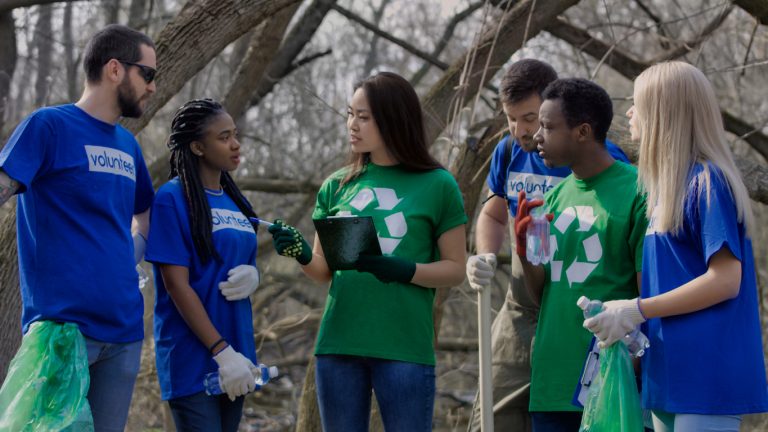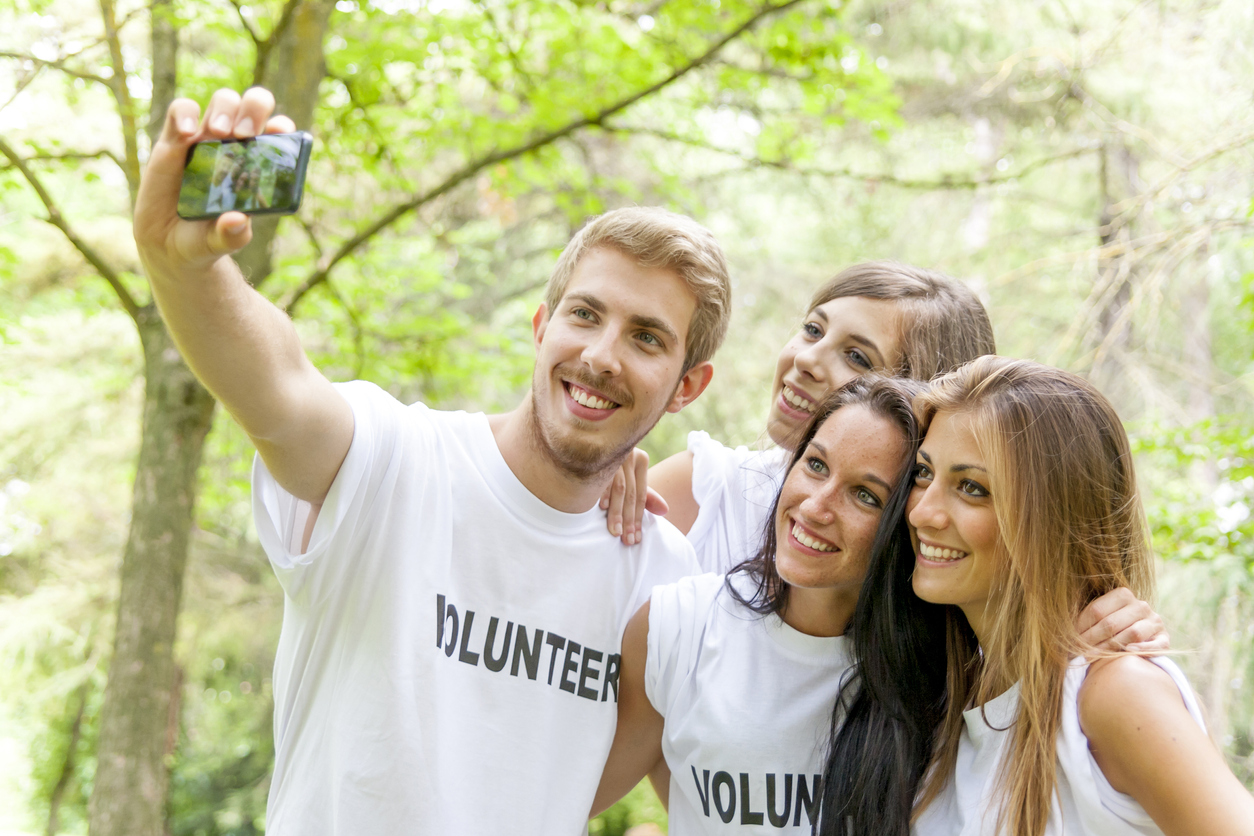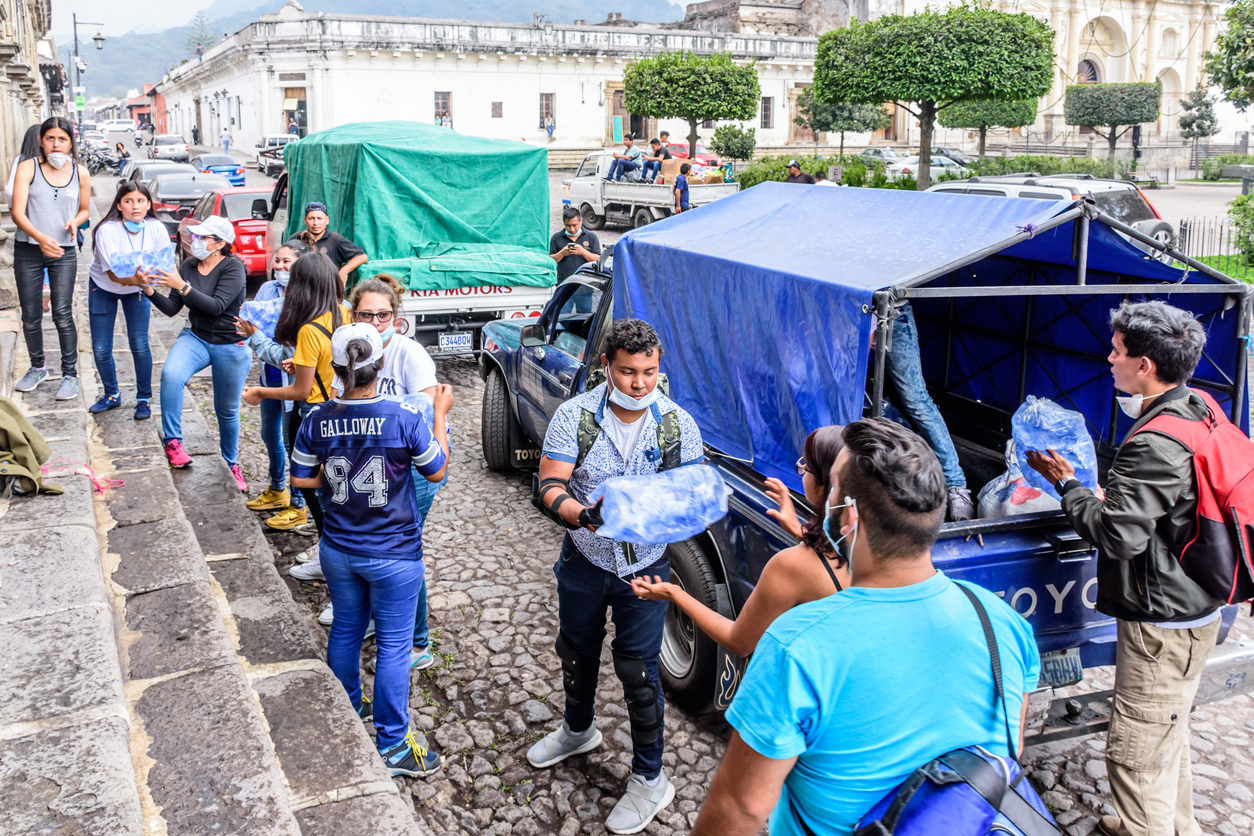
Voluntourism, the act of volunteering while traveling, has become such a huge trend that it’s now a multi-billion dollar industry. Giving back to others in need sounds like a noble act, but there’s a lot of negativity surrounding voluntourism. Author Claire Bennett weighs in on the matter.
Claire Bennett is a co-author of Learning Service: The Essential Guide to Volunteer Travel, which is full of more questions to ask and advice about international volunteering.
The Voluntourist: Many critics of voluntourism have portrayed volunteers as self-obsessed selfie taking do-gooders with a white savior complex. How did this become such a common stereotype and do you believe it to be true?

Claire Bennett: Firstly, I don’t believe this to be true – I have no doubt of the positive intentions that fuel most voluntourism trips. On the other hand, it isn’t hard to identify where this stereotype has come from. The set of attitudes that underlie what we term the “white savior complex” are layered and multifaceted, usually absorbed from western society that is still structured around this implicit bias. Very few volunteers think “because I am white I am better”, but some of them may think “this place is dirty, it could learn a thing or two about waste management from [insert home country here].” White saviors ignore the complex roots of poverty and how global inequality, and perhaps the volunteer’s own country, has played a role in creating or perpetuating that situation. If a volunteer has not learned about and analyzed this wider context, they might assume that there are simple solutions to these issues (such as “Dig a well!” “Build a school!”) and, however subconsciously, make judgments as to why local people have not helped themselves. All this is to say that volunteers need to take an active role in their unlearning of certain mindsets in order to not fall into this pitfall.
RELATED: Volunteering Abroad Guide -7 Helpful Tips to Giving Back Responsibly
The Voluntourist: Volunteering in orphanages has become rightfully controversial due to many factors such as inexperienced people working with children, no background checks are being done on volunteers, kids are being forced to live in impoverished conditions and trafficked for the sole purpose of generating donations from unsuspecting tourists and so on. That said, there are well-run ethical orphanages that rely heavily on volunteers because they can’t afford to hire a staff to perform essential duties. Do you think people should never visit or work in one?
Claire Bennett: This is a controversial perspective, but it can be argued that in 2019 there is no such thing as an “ethical orphanage”. That is not to accuse the people running them of having bad intentions – it can be true that orphanage owners feel that they are doing the best they can for the children in their care. However research established decades ago that institutional care is harmful for children, and that family-based care is a much better alternative. Instead of the response to that being a decline, countries all over the world we are seeing an increase in orphanages, with them often being used as the first choice for care of vulnerable children – in fact 80-90% of the children in orphanages all over the world have living parents. The fact is, when we channel money and support into orphanages we are redirecting it away from more sustainable forms of care, such as supporting children to stay with their parents or other family members. Orphanages that rely heavily on volunteer support, or that have precarious funding have to ask themselves difficult questions about whether their model of care is truly the best thing for the children. Vulnerable children outside of their families need highly specialized, professional, stable care – can short term volunteers from a different culture really provide that? Because there are thousands of new orphanages chasing the tourism dollars, there ends up being some that are out-competed, and that can’t provide adequate care for the children. Sometimes they are forced to put them at risk by sending them to beg or asking them to perform for foreign visitors. It’s a hard truth but I can’t see a single argument for travelers to be able to interact with or provide services for vulnerable children.
The Voluntourist: In addition to orphanage volunteering, why do you think voluntourism is under so much fire right now?
Claire Bennett: Firstly I think just to recognize that voluntourism is an extremely young phenomenon. Overseas volunteering has existed for decades but it is really only since the late nineties that it has been possible to book a short term vacation that is marketed as a way to “help” the destination. The increased demand for this form of travel has also been accompanied by a market incentive to provide opportunities that cater to the experience of the volunteer, rather than the needs of the community, which is a situation wide open to corruption. Fake orphanages may be one extreme expression of how profit can drive out ethics in the industry, but places that allow volunteers to “teach” children for a week or paint a wall that was painted last week are also driven by the same forces. Finally I think there is rising consciousness of ethical issues in all sectors, especially among the younger generations who are consuming more critically and who have more awareness of social justice dialogue. Millennial and Gen Z travelers are asking more critical questions about impact and responsibility.
The Voluntourist: What needs to be changed about the industry?
Claire Bennett: I think there needs to be a greater transparency around what the main purpose and benefit of voluntourism is. Marketing it as a response to a need or a long term solution to problems in countries overseas is disingenuous. Instead, marketing these experiences as immersive learning opportunities and a chance to engage with and support local communities with their own agendas may ensure that volunteers go in with the necessary openness and humility about the places they are going and the people who live there.

The Voluntourist: What are some positive benefits to voluntourism?
Claire Bennett: For community partners, voluntourism can be a way of unlocking funds, offering a cultural or skills exchange and providing a sense of solidarity or motivation under difficult circumstances. The experience can also provide benefits to the traveler themselves by allowing them to connect with a community or explore an issue. It can be a learning experience that transforms perspective of the traveler and greatly influence their life in the future. However these benefits are not automatic. In fact, some volunteer programs seem to actively work against creating the circumstances for these outcomes, by, for example, closing off learning opportunities for volunteers or actively engaging in corruption. These benefits are also not unique to voluntourism – when done well, other forms of travel such as ecotourism or educational travel can also have similar benefits.
The Voluntourist: What can someone do to be a more responsible volunteer?
Claire Bennett: This is an excellent question – and really was one of the main motivations behind us writing the Learning Servicebook. Being more a more responsible volunteer starts with asking this very question, and when we have to answer the question with one word instead of 400 pages, we offer “learning” as the key. This learning starts with cultivating the self-awareness and attitudes that will help you be effective when trying to help others, but also extends to the need for researching the context, evaluating the opportunities, and being open to other perspectives throughout your journey.
The Voluntourist: There are many unskilled volunteers who have a sincere desire to give back on a voluntourism trip. What advice would you give them?
Claire Bennett: I would start by sincerely applauding their wish to do good in the world, and encourage them not to lose motivation even when making the impact they desire can sometimes seem more difficult that they originally thought. If they feel ready to buy a ticket to another country, I would suggest that they consider doing a learning journey or another kind of experiential trip, rather than one that frames itself as “helping”. This is not to say that young people aren’t able to make a difference – in fact I often contest the use of the word “unskilled” as I believe that everyone has skills. However, you need to be sure that you put your skills to best use by being as informed as possible about the situation and cultural context you enter and the problems you wish to solve – it is unlikely that you can do enough of that learning during a short term vacation. Instead of diving in to “help” immediately, take the pressure off yourself and see a short term trip as a way to add fuel to the fire of your passion, and understand how to contribute to long term positive change.

The Voluntourist: Many believe short-term volunteers don’t make a difference. What are your thoughts?
Claire Bennett: It depends how we define “make a difference.” In all but the most specialized cases, the presence of short-term outsiders is not fundamental to the success of a project. However if we expand the definition to include the impact on the volunteer and the actions they go on to take as a result of their volunteer experience, then there is a lot of social change that has been kick-started by a short stint of volunteering.
The Voluntourist: What are some red flags volunteers should look out for when researching responsible voluntourism organizations?
Claire Bennett: Look at the language and imagery that is being used to advertise the volunteer opportunities. Is it vaguely-guised “poverty porn”, showing misery and desperation? Does it claim that there is a great “need” for volunteers, or show them in positions of power like white saviors? Or on the other hand, is the language of tourism overused, making volunteering sound easy and fun, rather than complex and hard work? Another red flag is if you can sign up for a program and “buy” an experience in a few clicks, without there being evidence of skills-matching.
RELATED: 9 Things I Wish I Knew Before Volunteering/Interning with IVHQ
The Voluntourist: How can volunteers ensure their free labor isn’t taking jobs away from locals?
Claire Bennett: In researching our book, we rarely found situations where volunteers were directly “taking away jobs.” In most cases, volunteers were not doing roles that salaried locals were previously doing because the volunteers rarely have the skills or time commitment required to be a teacher, carpenter or health assistant. In fact, volunteers often bring money with them that can unlock resources – so volunteers may fund house-building projects that include salaries for engineers and construction workers to oversee the work, which creates local jobs. On the other hand, if potential volunteers are looking for the most efficiency in the way that they spend their donation money, then the answer will rarely be a team of foreign volunteers, who need flights and accommodation and a whole bunch of other services such as translation. Sending the money that it cost the whole “house-building mission” directly to employ local people will definitely be able to build more houses in the long run. The main thing to bear in mind is that as a volunteer you should never seek to do jobs you are not qualified to do or practice beyond your skill set. A good rule of thumb is that if you are not qualified to do it at home you are not qualified to do it anywhere, and you run the risk of replacing local people with the necessary skills and long term commitment.
The Voluntourist: How can volunteers continue to make a difference after they return home?
Claire Bennett: In the Learning Service philosophy we say that, however long someone spent volunteering, or however effective their placement was, what they do after their time spent overseas is the most important part of their experience. The cumulative effect of the actions and choices you take over the period of our life can be enormous. This can include everything from whom you choose to vote for, how or how much you consume, the career you go into, and how you treat people around you. If volunteers see their placements as the first step in leading a life of positive change then you can make a difference every day.
You can find out more about Learning Service from their website: www.learningservice.info or follow them on Facebook, Twitter orInstagram.
